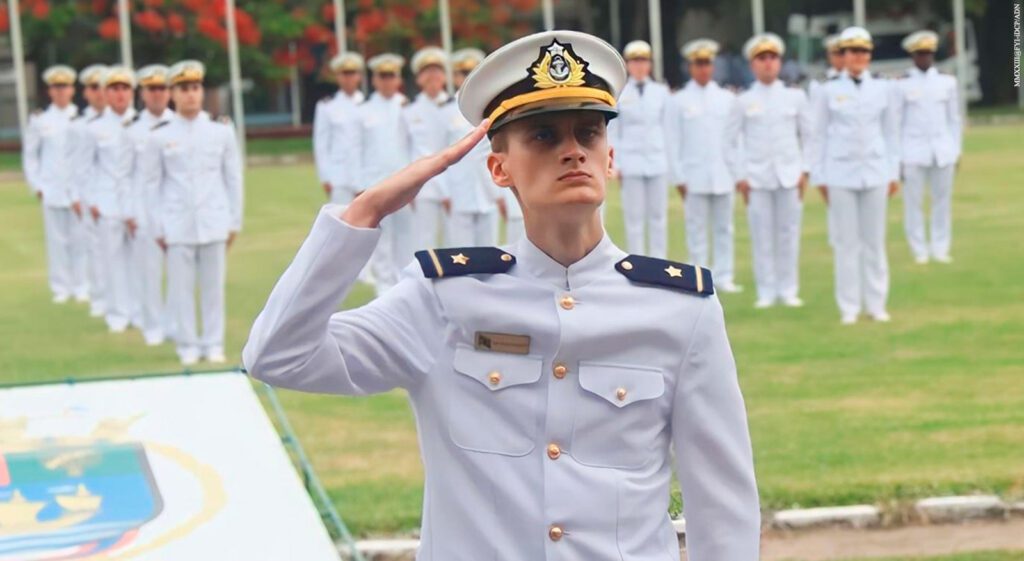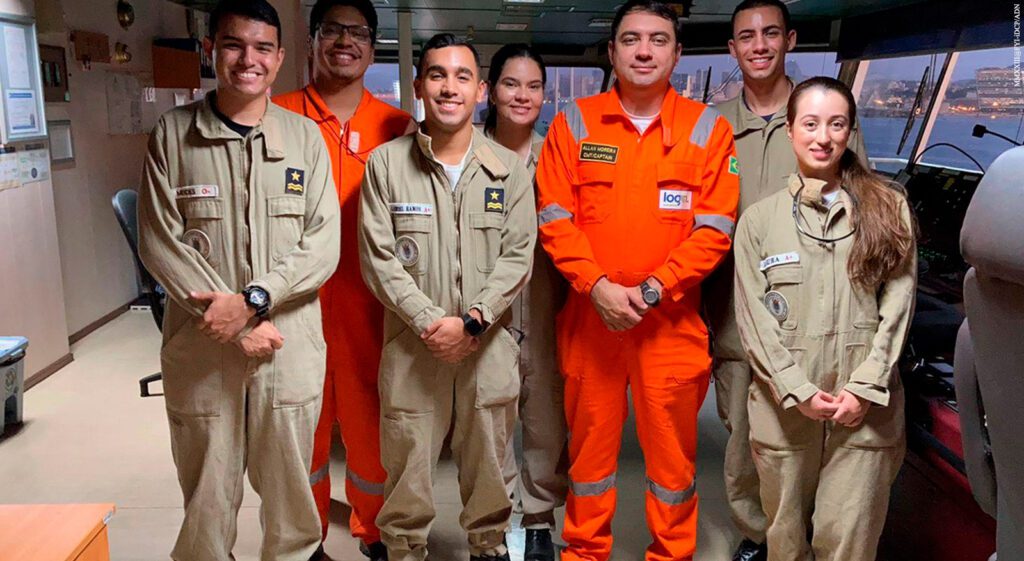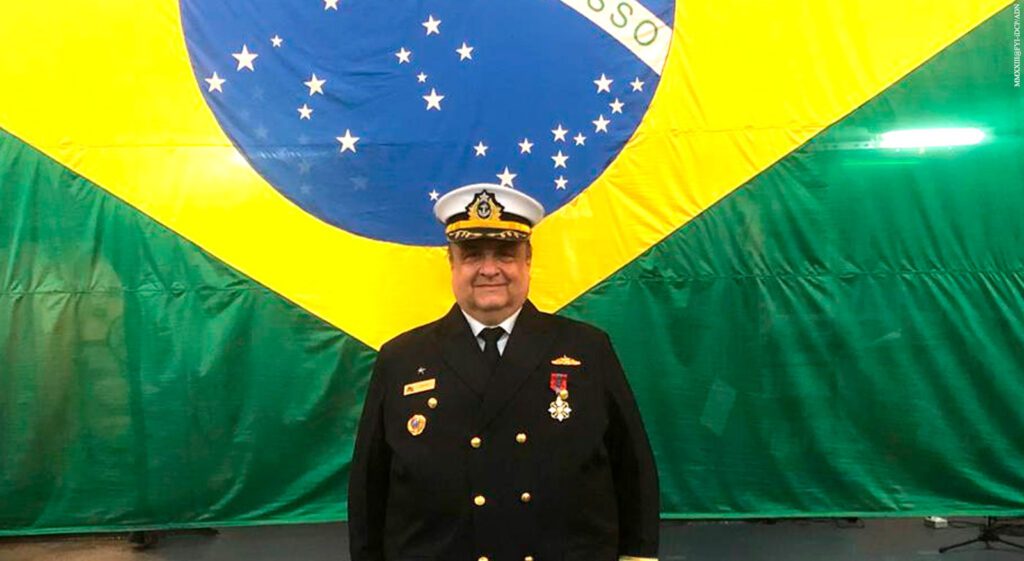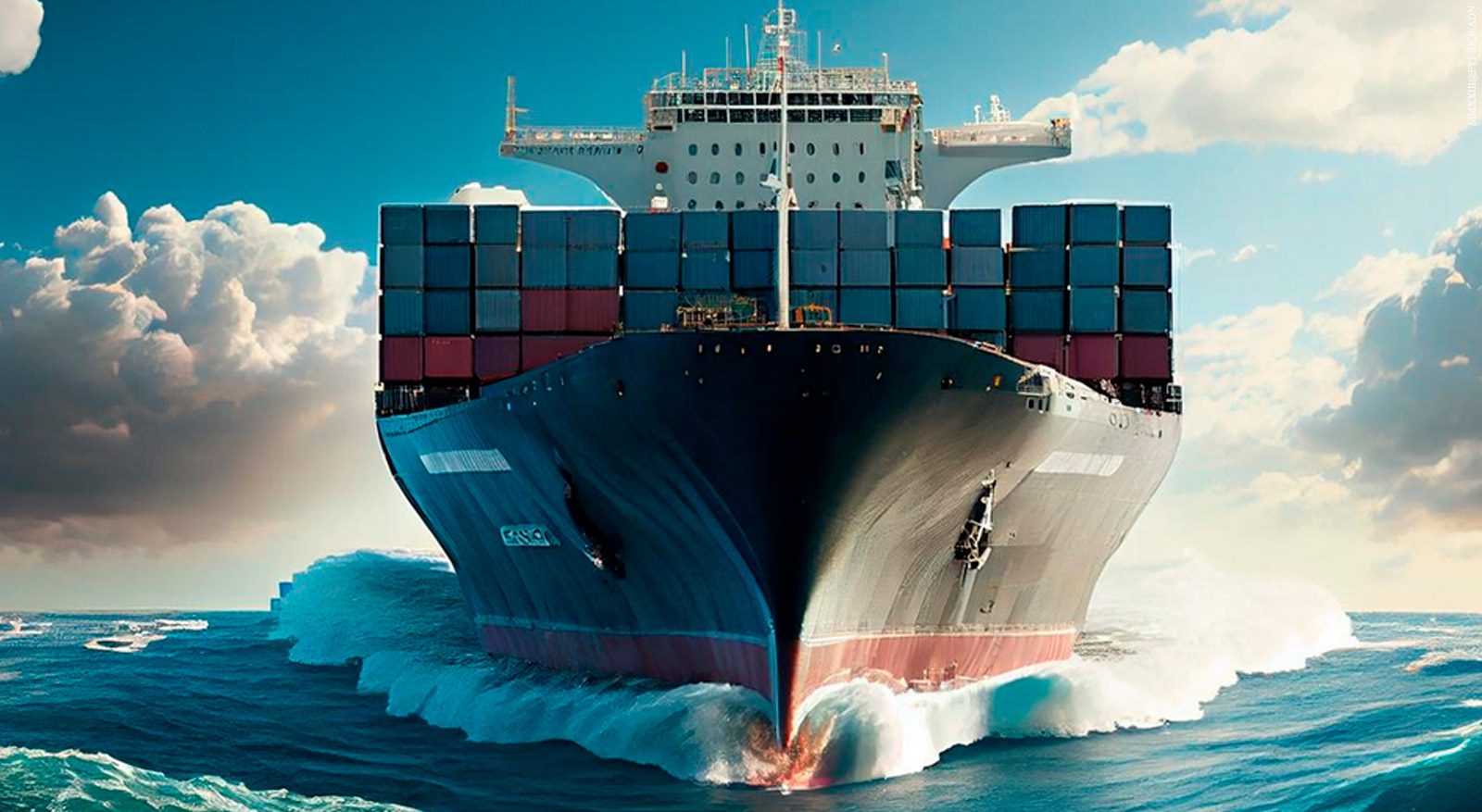An important part of the Maritime Power completes another year of creation today
By Second Lieutenant (RM2-T) João Stilben – Brasília, DF
Brazil is a maritime country, with an area of more than 5.7 million km², the Blue Amazon, through which around 95% of foreign trade passes and where 97% of national oil production is concentrated. In addition, more than 80% of the Brazilian population lives less than 200 kilometers from the coast. For this reason, it is essential to highlight the importance of the Merchant Navy to society and its strategic role in the national economy, generating jobs and inducing improvements in port infrastructure and services.
The importance of this driving force behind growth was even more evident during the period of the State of Health Emergency, caused by the COVID-19 pandemic, when the Brazilian economy needed to demonstrate its full strength and maritime transport remained in operation.
For this and many other historical reasons, today (the 28th) is Merchant Navy Day, a date alluding to the birth of its patron: Irineu Evangelista de Souza, the Viscount of Mauá.
Training
The Merchant Navy Officers’ Training School (EFOMM) is a University of the Sea, a reference center for the training of highly qualified Merchant Navy Officers, not only from Brazil, but also for young people whose country of origin does not have a school of this type, or for young people whose country of origin has student exchanges, such as Peru, Panama, Ecuador, the Dominican Republic, etc.
Teaching activities are carried out at the Almirante Graça Aranha (CIAGA) and Almirante Braz de Aguiar (CIABA) Instruction Centers, both linked to the Brazilian Navy (MB). Officers are trained at EFOMM in two different courses: Nautical and Machinery. For both, students study at the school on a boarding basis for three years, followed by a one-year internship on board. The course lasts a total of eight semesters.
The curriculum includes academic activities – developed in classrooms, laboratories, on board vessels, platforms, maritime terminals, shipyards and simulators -; military activities – developed with a view to military-naval training and comprising curricular subjects, embarkations, graduations, ceremonies and civic-military events, daily service, leadership practice and routine activities of the Military Organizations -; and extra-class activities – which are designed to complement the course and comprise: lectures, seminars, films, visits, social and sporting-cultural activities of interest to the student’s education.
After the end of the 3rd year, students must complete a Practitioner’s Internship on board merchant vessels used in maritime navigation and maritime support, exclusively in companies indicated by the Training Centers. During the academic semesters, students are military personnel, as provided for in the Military Statute, as they are undergoing MB Reserve Officer Training.
After declaring themselves Practitioners, the students are discharged from the MB’s Active Service, included as a Marine Guard in the Reserve, in accordance with the legislation in force. As civilian students, they are governed by the Maritime Professional Education Standards (EPM) and the Internal Regulations of the Training Centers. On completion of the course, the student is declared a Bachelor of Nautical Sciences (a higher education course), and joins the MB’s unpaid Reserve Officers, at the rank of Second Lieutenant.

Head of Class 2023
Head of Class (first place in his class) at this year’s EFOMM, Marine Ranger (RM2) Arthur Schmitt Stinghen, 21, says that, since high school, he had a lot of doubts about what he would choose as a profession. “I’d like something that isn’t so common in our daily lives, but that is very important for our country,” he said.
According to him, when he joined the EFOMM at the age of 18, he began to see the true universe that was the Merchant Navy. “I discovered how beautiful this profession is and how important it is to our daily lives. So, professionally, I can see the real importance of what I chose, and I feel ready to start taking my steps in the Merchant Navy, adding a lot of value to the country and to my professional life,” added the recent graduate.
Regarding EFOMM’s teachings, beyond his life at sea, the marine guard says that the word resilience sums up everything he learned at the school. “During training, you have a lot of problems to solve, a lot of content to study, responsibilities and research to do. And we have to adapt to all of this, and be resilient so that we don’t give up, even in the face of the greatest adversities and difficulties, knowing that even if we have problems, we have to solve them,” he concludes.

On the route with the Captain
Long Course Captain (CLC) Allan Moreira graduated from the EFOMM in 2009 and has more than 2,700 days at sea. According to him, being away from his family is now minimized by new forms of communication, including wi-fi on board. “In addition, shipping companies have reduced the time spent on board, and we deal with this in the knowledge that everything we do is really important. We make it very clear to our children that this distance is part of the profession, but that, although we are physically apart, we are always together,” says the Commander.
The officer says that the Merchant Navy has high merit for the growth and enhancement of the country, since it depends a lot on export earnings. “The issue of grains and meat, as well as oil, basically all exports and imports are possible by sea. In other words, this merit is gigantic, although the recognition is not the same, due to a maritime mentality that is not yet like that of the Europeans, although the country was born from the sea. The Brazilian people must therefore have it ingrained in them that the people who work at sea, whether in the War or Merchant Navy, have a high economic and sovereignty value,” he said.
Longshore Captain Sérgio de Moura is the commander of the PSV Gemsbok and has been in the profession for 40 years, with almost 8,000 days at sea. For him, an important factor in valuing the Merchant Navy is the recognition of its deterrent power, being part of the Naval Power and, consequently, part of the Maritime Power. “The more Brazilian merchant ships there are sailing along the Brazilian coast and in inland waterways, as well as the long haul, the greater the surveillance of our coast and our Blue Amazon,” the Commander guarantees.
According to him, the most important lesson the students learn during their course at the EFOMM is how to prepare for boarding. “The boarding school system prepares us well for life on the high seas and being away from family and friends. To this day, my class and I keep in touch and exchange experiences. Our teachers were brilliant,” he recalls.
The captain points out that the challenges are high in the profession, as each long-haul captain is responsible for everything that happens on the ship. “He’s responsible for everything. In addition, not only the ship’s structure, but also the human life present and the environment (which could be affected in the event of an accident) fall on the captain’s shoulders.”
When he was sailing south of Cape Agulhas (the southernmost continental part of Africa), passing from the Indian Ocean to the Atlantic, long-haul captain Sérgio came across an extremely dangerous sea. “It was a Beaufort Scale 12 (which classifies the intensity of winds, taking into account their speed and the resulting effects of gales at sea and on land), equivalent to a hurricane. All this on a vessel over 300 meters long, fully laden with crude oil. “We coped well with the sea of 12, but we had to turn 180º, in other words, turn around in order to survive the weather,” he recalls.
More recently, a month ago, he faced winds of more than 70 knots (almost 130 kilometers per hour), near the Mocanguê anchorage (in Guanabara Bay, Rio de Janeiro). “They were intense gusts, where it was necessary to use all the machines operating, because the iron (as the anchor is called) wouldn’t hold our position. But our vessels and personnel are prepared for this, in other words, a good naval design means that the ship and crew can safely face any bad weather,” reassured the Commander.

Women in Command
Long-distance Captain Daisy Lima da Silva Souza has been in the profession for 21 years, nine of them as Commander. Today, she is in charge of the Aliança Leblon, which does cabotage (navigation along the Brazilian coast). She recognizes that Brazil is a country with a coastline with huge potential for this type of shipping, and that transporting cargo by ship “has a dimension that you can’t get with other forms of transport, as well as being able to reduce carbon emissions per load transported, which is a gain for the environment compared to road transport”.
Regarding life at sea, the officer points out that, with the adoption of the ‘one-for-one’ period, i.e. the same time at home as on board, as well as more advanced forms of communication, the challenge of distance from home has become easier to overcome. “I love my job and dedicate 42 days to it. It’s a challenging lifestyle. And the 42 days I’m at home, I dedicate to enjoying the wonderful family that God has given me, and the good friends I’ve collected throughout my life,” she adds.
Commander Daisy hopes that, in the future, Brazil’s merchant seafarers will continue to strive to achieve goals to ensure the well-being of the people involved in the sector and to prevent harm to the environment. “Life today without ships would be difficult, so I hope we can provide this work with ever less impact on the environment,” she said.
Source: Agência Marinha de Notícias *** Translated by DEFCONPress FYI Team ***
